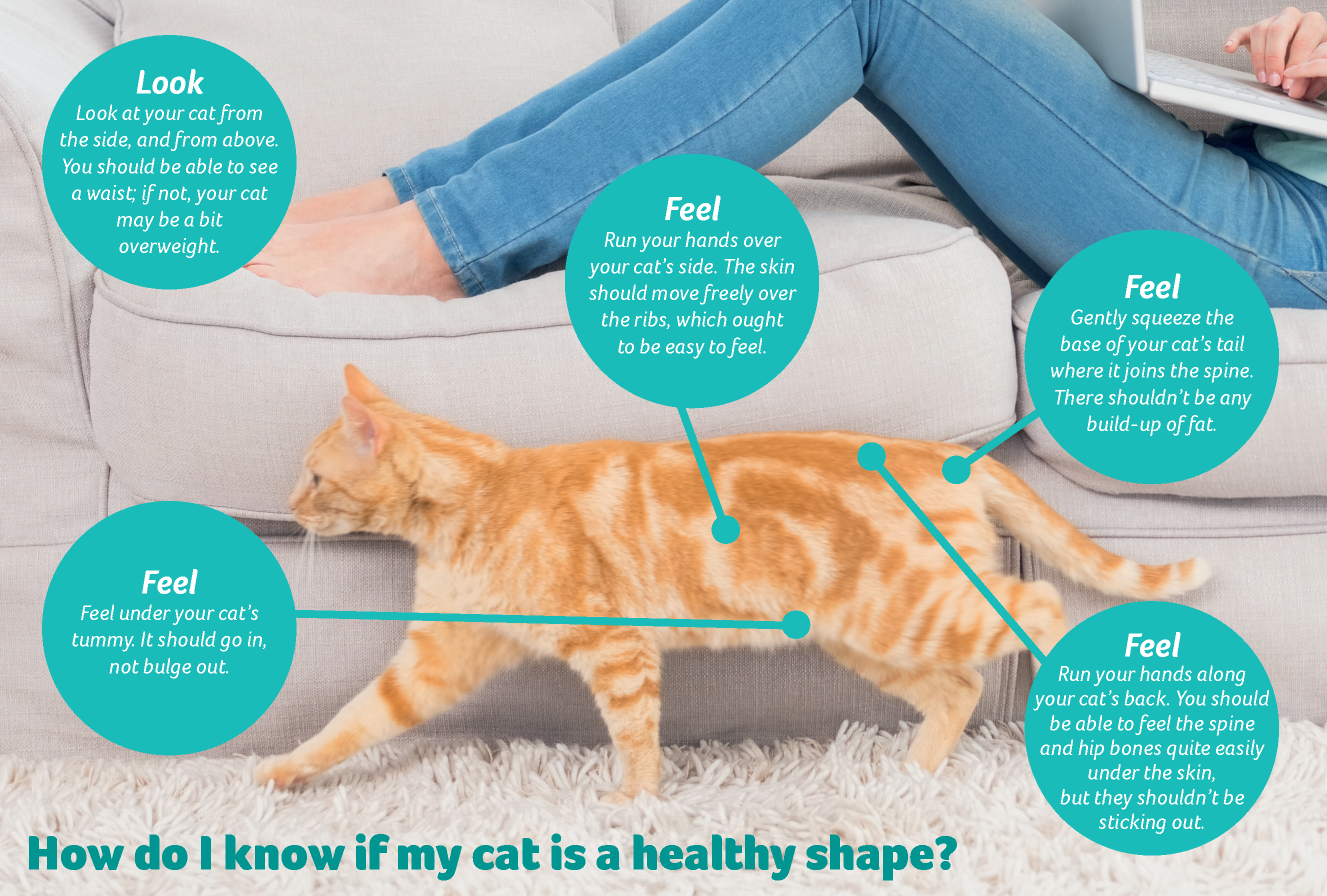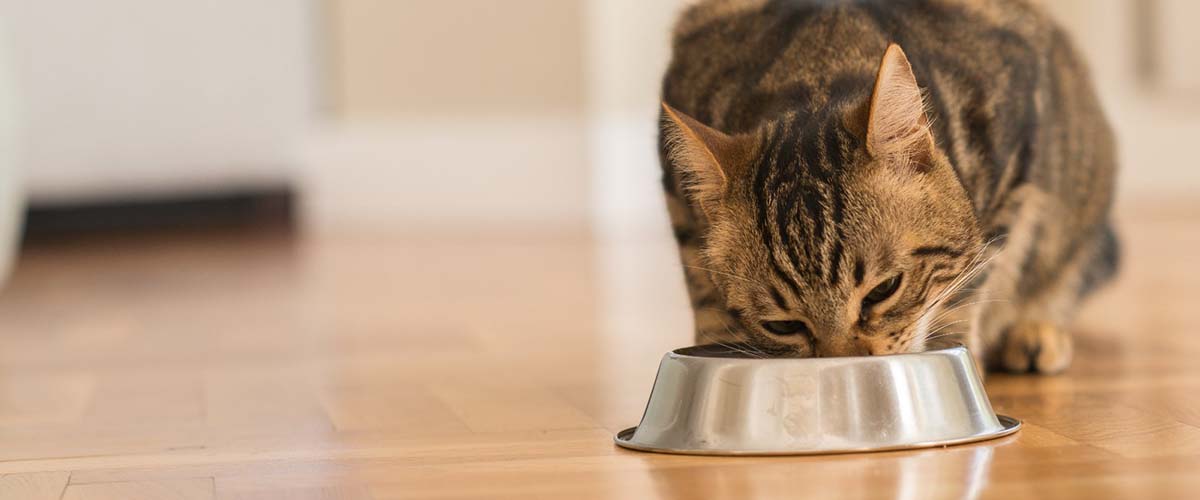Obesity in cats
Why is my cat overweight?
Diet and exercise:
Most overweight cats are simply just eating too much! ‘Eat less, move more’ – this simple formula really does work.
Medical:
It’s rare for obesity in cats to be caused by a medical problems. However, if your cat has slowed down due to an illness such as heart disease, lung disease or arthritis, they may have a tendency to gain weight. Always have you cat checked if you think they might be gaining weight because of a medical problem.
Pregnancy:
If you have an unneutered female cat that could have had access to a male, it’s important to rule out pregnancy as a cause of their weight gain.
The best diet for an overweight cat
It’s important to feed your cat a healthy diet, and a sensible amount of treats. You will find their recommended daily allowance the back of their food packet, but it’s important to use common sense when making a final decision about how much to feed them. If your cat is overweight, or does very little exercise, you will need to adjust their food accordingly. Cats naturally graze at food throughout the day so split your cat’s daily allowance into at least two meals (ideally more).
Exercise
Make sure your cat has enough daily exercise, especially if they are kept indoors. If you cat is naturally quite inactive you will need to encourage them to move around by playing with them.
Health risks
Health problems that can be caused by cat obesity include:
- Diabetes
- Bladder problems (especially FIC)
- Liver disease
- Arthritis
- Breathing problems (especially in flat faced breeds such as Persians)
- Cancer
Keeping your cat slim will give them the best chance of living a long happy life. If you are struggling to keep your cat slim, contact your vet or vet nurse. Many veterinary practices now offer specific weight clinics. Your cat should also have their weight checked at their annual health check and vaccination.
Consider insuring your cat as soon as you get them, before any signs of illness start. This will ensure you have all the support you need to care for them.
FAQ's
What’s the best cat food for overweight, indoor cats?
If you have an overweight cat that doesn’t go outside, it’s likely that they are taking in more calories than they burn off each day. They will benefit from a low calorie diet, and some daily play time to get them moving around. Read more about exercising an indoor cat.
How do you feed two cats when one is overweight?
Fortunately, if your cats are microchipped, there is a simple solution to this common problem. It is now possible to purchase microchip activated feeding bowls that only open for one particular cat. By using these special feeding bowls you can easily regulate how much food each of your cats has. Alternatively, you could feed your cats in separate rooms to prevent them stealing food from each other. If your smaller cat needs to be fed throughout the day, it may be necessary to feed them separately by hand.
How much should I feed my overweight cat?
If your cat is overweight, it’s important to feed them the amount recommended for their ideal weight, not their actual weight. So, if your cat is 5kg, but their ideal weight is 3.5kg, feed them the amount recommended for a 3.5kg cat. Don’t panic if you have accidentally been overfeeding your cat, just reduce their meal sizes slowly over a couple of weeks. Ideally, your cat should graze throughout the day, split their daily allowance into at least two meals (ideally more).
Published: August 2020
Did you find this page useful?
Tell us more
Please note, our vets and nurses are unable to respond to questions via this form. If you are concerned about your pet’s health, please contact your vet directly.
Thank you for your feedback
Want to hear more about PDSA and get pet care tips from our vet experts?
Sign up to our e-newsletter
Written by vets and vet nurses. This advice is for UK pets only. Illustrations by Samantha Elmhurst.



